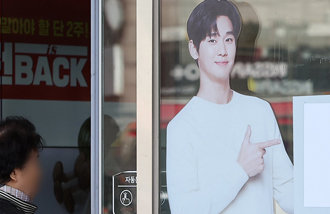Gov’t begins deliberations on next year’s minimum wage level
Gov’t begins deliberations on next year’s minimum wage level
Posted June. 10, 2022 08:03,
Updated June. 10, 2022 08:03
Starting Thursday, the Minimum Wage Commission began deliberations on next year’s minimum wage level in earnest. The business sector argues next year’s minimum wage to be maintained at 9,160 won, which is same as this year’s level, because it has been raised so much that most SMEs cannot bear the burden any more. The two major trade unions are asserting that low-income workers are experiencing hardships because of the highest inflation in 14 years, thus they propose to raise the minimum wage by 30% to 11,860 won. A huge difference between the two sides of 2,700 won is signaling this year’s deliberations to become more heated than ever before.
The rate of increase in the minimum wage in Korea has been unprecedented over the past few years. The cumulative increase rate of the minimum wage for the past five years was 44.6%, which is four times higher than the average increase rate of the five developed countries including the U.S., the U.K., Germany, France, and Japan. In terms of the minimum-to average wage ratio of workers, Korea is the highest among OECD member countries. Also, unlike the United States, Canada, and Japan, where the minimum wage is determined differently according to the region and age, etc of the workers, the same criteria are applied to all workers in Korea.
The minimum wage, which has been raised too quickly, has already caused major side effects. In March of this year, the proportion of the self-employed among the total employed fell below 20% for the first time since statistics were compiled. This is because many of the self-employed, bearing the brunt of the increased minimum wage, shut down their businesses permanently during the COVID-19 pandemic. On the other hand, the share of businessowners who run their business without hiring an employee is continuing to increase. Because of the wage burden, unmanned kiosks have been introduced, and employees who had been working at mom-and-pop stores for a long time have been let go, rather than having the owners’ family members come to these establishments to help out. There are many restaurants that are having difficulties due to soaring food prices, and some coffee shop owners are complaining that they make less than the people they hire on a minimum wage. At the same time, however, public officials, public corporations and employees of large companies are almost intact by the minimum wage increase.
This year's consumer price index (CPI) inflation, which is expected to be in the high 4% range, is a factor that should be taken into account when determining the minimum wage. However, with the looming risks of stagflation (inflation in a recession), raising the minimum wage that exceeds inflation may be the worst option to think of. Excessive hikes in the minimum wage are more than likely to increase the burden on businesses, and result in price increases for services and products. A vicious cycle of inflation, once triggered, will lead to consumers closing their wallets, deteriorating the economy, and put the jobs of the underprivileged in the labor market, such as youth, women, and the elderly, at risk first. This is why both the labor and management should pool their wisdom together to promote mutual benefit.
Headline News
- Opposition parties pass amendment to Commercial Act
- Impeachment motions against top officials dismissed
- IU's residence ranked as the nation's most expensive apartment
- K-medicine saves 300 lives in Mongolia through liver transplant skill transfer
- Prisoners in N. Korean camps suffer from torture at minus 30 degrees







